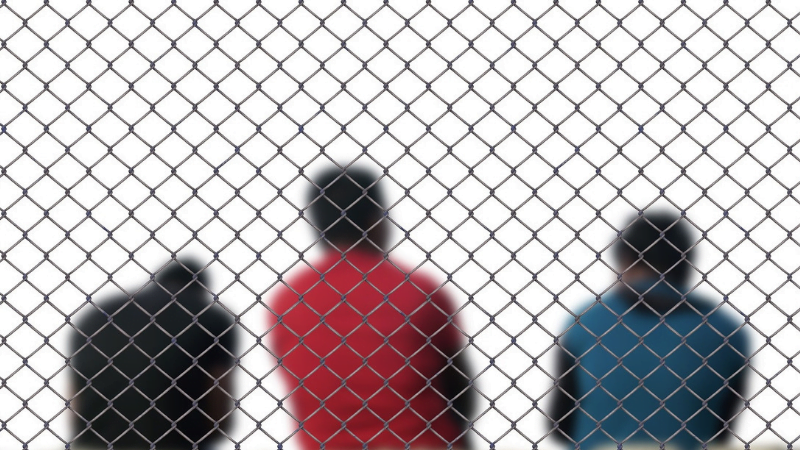Malta has a racism problem, and nothing is being done to address it.
How deep does racism run in this purportedly Catholic country? Can outsiders ever be accepted in Maltese society?
These questions came to the fore again after a riot at the Hal Far open centre, where cars were burnt, offices smashed, and staff endangered. Such violence is unacceptable, and some 90 people who allegedly participated in the riot are now facing charges.
But it wasn’t the riots that shocked people. It was the response of citizens, some of whom unleashed a barrage of racist hate on social media, notably beneath a Facebook post connected to a report on the riot by the Labour Party’s One News.
“Shoot at them… women, men and children, kill them all,” one said.
Another: “Since hunters don’t have an outlet to vent anymore, let’s open season on these bastards”.
One man invoked the Holocaust in a post that would result in immediate prosecution in countries like Germany or Canada by writing, “They need a Hitler-style gassing”. Another wrote, “If I were in charge, I’d set all of them on fire, Hitler style”.
Followers also praised Francesco Fenech and Lorin Scicluna, the two Armed Forces of Malta soldiers charged with murdering Lassana Cisse Souleymane in a drive-by shooting.
Posts on social media calling for open violence constitute hate crimes. So far we haven’t heard of any action being taken in response to these crimes. Home Affairs Minister Michael Farrugia even went so far as to say “we will not be going through every comment on social media on a witch-hunt and flood our courts”. Ironically, he said this while unveiling a shiny sign for his new Hate Crimes & Speech Unit. Does this imply the government condones the inflammatory posts?
These are not random nutcases. These are our colleagues, neighbours and friends. And given the number of posts expressing such sentiments, that sort of thinking isn’t rare.
I’ve long noticed that articles on migration in the mainstream media have their comments sections closed. The comments they tend to attract do not show the country in a good light. But hiding such sentiment does nothing to address it. It only allows hate to fester.
The problem is compounded by the failure of the country’s leaders to address the issue in a responsible manner.
Joseph Muscat ‘expressed his disgust’ at reports of racist hate speech, but also downplayed concerns by suggesting that media houses were overreacting and saying everyone now wants to kill black people.
Of course, this is the same prime minister who, in a televised debate shown in the immediate aftermath of Malta’s first racially-motivated killing, said, “I would want the Maltese to be working in skilled jobs as managers, doctors and teachers, and foreigners to work in the jobs that require long days in the sun and pick up rubbish from the streets”.
The prime minister isn’t the only official whose moral compass has gone askew. Former president Marie-Louise Coleiro Preca took to Facebook to offer a stern scolding after the latest outbreak of racial hatred.
“In a full and effective democracy, the right to freedom of expression is sacred. However, fomenting hatred is an abuse of this right and a transgression of the human rights of others,” she wrote, going on to “urge those who use social media to be respectful in the way they communicate their diverse views”.
Does a comment like “they need a Hitler-style gassing” really reflect nothing worse than poor manners or a lack of respect?
Coleiro Preca seems not to understand that hate speech is, in fact, a crime. Her government shouldn’t just ‘do everything possible’ to stamp it out. It has a legal obligation to prosecute.
Then again, this is a government that frequently hides behind “free expression” when condoning inappropriate comments made by public officials, while simultaneously denying free expression through its nightly destruction of the protest memorial calling for justice for Daphne Caruana Galizia.
What’s clear is that tensions are rising on both sides of this issue. Asylum seekers are frustrated by the living conditions they’re having to endure, and by the apparent hopelessness of their case.
Racists are coming out of the woodwork in increasingly public fora, to the point where a priest openly praises Nazi sympathiser Norman Lowell for telling Maltese people that they are becoming “foreigners in their own country”.
But the situation is more complicated than simple backwoods bigotry. People are also legitimately concerned about rising levels of immigration, and a European migrant crisis that has placed them on the front lines simply due to geography.
These fears are compounded by the island’s history of being repeatedly conquered, and by the realities of living in a small country that lacks natural resources. How much does Malta have to give? And does generosity mean that your family will get less?
These citizens must not be tarred as racists for expressing their worries about the future of their country and their culture. Their views must be heard, too.
The situation calls for real leadership rather than political opportunism.
The migration crisis isn’t going away. Given the advance of climate change and drought, it will get worse. We need to be able to have open, honest, respectful conversations about immigration where legitimate questions can be raised.
How do you see migrants fitting into Maltese society? Will they ever be accepted as fellow Maltese, or are they just a source of cheap labour to be exploited?
Does acceptance depend on skin colour, level of wealth, education, career qualifications, or how much an immigrant can pay for a passport?
Is it acceptable to house people in conditions that resemble prison camps?
How much migration can Malta sustain, given limited physical space? And how can newcomers be helped to integrate into Maltese society?
We can either discuss such issues with rationality and compassion, or we can allow bigots to pour the lighter fluid on that hate and wait to see who strikes the match.












